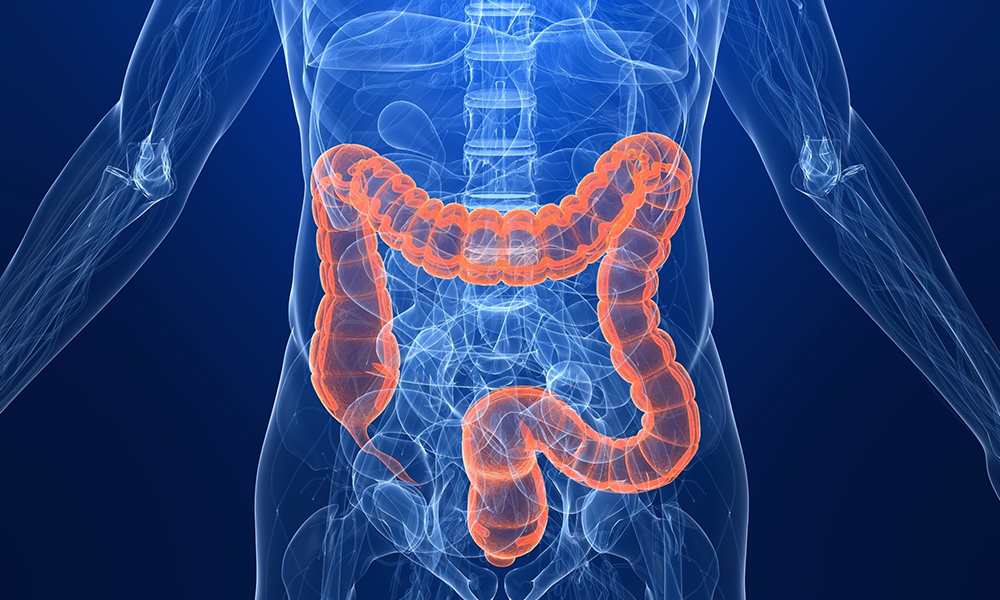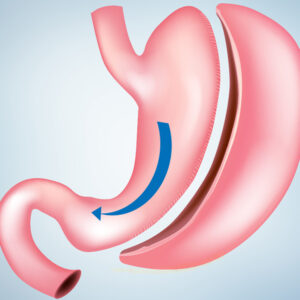
Rectal Cancer Causes and Prevention Methods
Rectal cancer develops from the rectum’s lining. The rectum is your colon’s lower 6 inches (large intestine). Rectal cancer, like colon cancer, is highly treatable if diagnosed early. Colorectal cancer, on the other hand, is any cancer that can develop in the colon or rectum.
Risk Groups for Rectal Cancer
Rectal cancer’s specific cause is unknown. The following variables may raise your chances of developing rectal cancer.
Age
After the age of 50, more than 90% of persons are diagnosed with colon cancer.
Colorectal cancer family history (especially parents or siblings)
For the past 8 years, you have had Crohn’s disease or ulcerative colitis.
Polyps of colorectal origin
Personal experience with breast, uterine, or ovarian cancer.
Rectal Cancer Prevention Tricks
Rectal cancer is avoidable.
- Polyps cause almost all occurrences of rectal cancer. These polyps are harmless growths in the rectum lining. Polyp detection and removal with colonoscopy lessens the risk of rectal cancer.
- Screening for average-risk patients normally begins at the age of 50. People who are at high risk are typically encouraged to receive their first test at a younger age. Although the research is not conclusive, there is some indication that nutrition can help prevent colorectal cancer.
- A high-fiber, low-fat diet (whole grains, fruits, vegetables, and nuts) may help prevent colorectal cancer.
Symptoms of Rectal Cancer
Rectal cancer normally does not cause symptoms and is discovered during routine screening. It is crucial to realize that some of the same symptoms might be caused by other prevalent health concerns. Hemorrhoids, for example, are a common source of rectal bleeding but do not cause rectal cancer. Rectal cancer symptoms include:
- Constipation or diarrhea
- Blood in the stool that is red or very dark
- Chronic abdominal or intestinal pain (e.g. gas, bloating or pain)
- Unknown cause of weight loss
- nauseousness or vomiting
- Tired all of the time
- Abdominal discomfort and weight loss are frequently late indications that imply a larger problem.
Anyone experiencing any of the symptoms listed above should seek medical attention as soon as possible.
Rectal Cancer Diagnosis Methods
- Medical background
- Examination of the physical body
- Examinations of the blood
- Inserting a gloved and greased finger into the rectum to look for abnormalities is known as a digital rectal examination.
- Proctoscopy: A narrow tool called a proctoscope is used to examine the anal cavity and rectum.
- Colonoscopy: A long, flexible instrument called a colonoscope is used to examine the whole colon.
- Biopsy: The collection of tissue samples for examination under a microscope for signs of malignancy.
Screening Tests for Rectal Cancer
CT scan:
A very sensitive X-ray examination that allows doctors to view “within” the body and examine all organs. This test can aid in the detection of cancer that has gone beyond the rectum.
PET (positron emission tomography) scan:
A radioactive tracer-containing dye is used in an imaging exam. This helps doctors to pinpoint locations where cancer has migrated beyond the rectum.
CEA test:
Carcinoembryonic antigen is a chemical found in the blood that can increase in the presence of cancer. Although not totally definitive on its own, this test is used to assist monitor patients after cancer treatment.
MRI:
A magnetic field and radio wave energy pulses are used to make images of organs and structures in the body. This assists in determining whether the tumor has progressed through the rectal wall and into surrounding structures.
Endoscopic ultrasonography (EUS):
A procedure that involves inserting an endoscope into the rectum. An ultrasound can then be used to detect how far the cancer has spread into the rectum wall.
Survival Rates for Rectal Cancer
People with localized stage colorectal cancer have a 91% 5-year survival rate. Approximately 37% of patients are diagnosed at this stage. The 5-year survival rate is 72% if the cancer has spread to neighboring tissues or organs and/or regional lymph nodes. At this regional stage, around 36% of patients are diagnosed.
The 5-year survival rate for cancer that has spread to distant areas of the body is 15%. At this late stage, around 22% of individuals are diagnosed. However, for individuals who have only one or a few tumors that have migrated from the colon or rectum to the lung or liver, surgical removal of these tumors can sometimes remove the malignancy, increasing their 5-year survival rate significantly.
Survival rates for colon cancer and rectal cancer are also given individually.
- The overall 5-year survival rate for colon cancer in humans is 64%.
- The 5-year survival rate is 72% if the cancer has spread to neighboring tissues or organs and/or regional lymph nodes.
- The 5-year survival rate for colon cancer that has spread to other areas of the body is 14%.
The overall 5-year survival rate for rectal cancer in humans is 67%.
- The survival rate is 90% if cancer is detected at an early stage.
- The 5-year survival rate is 73% if the cancer has spread to neighboring tissues or organs and/or regional lymph nodes.
- The 5-year survival rate for cancer that has spread to distant areas of the body is 17%.
Rectal Cancer Surgical Treatment Options
In most cases, surgical excision of rectal cancer is required for a complete cure. Depending on the location and stage, this can be done through the anus (rectum entrance) or the abdomen.
- The tumor and lymph nodes, as well as a portion of the normal rectum on either side of the tumor, are removed.
- A colostomy is a medically produced opening that connects the skin of the abdominal wall to a portion of the colon. This treatment is usually only performed on a small percentage of rectal cancer patients.
- Trained surgeons can use minimally invasive surgical methods on a case-by-case basis. Before surgery, your surgeon will discuss this with you and decide on the best method.
Methods of Medical Treatment
Depending on the stage of the cancer, chemotherapy or radiotherapy may be recommended before or after surgery.
Factors of Prognosis
- Early detection using screening measures such as colonoscopy is critical. The stage of rectal cancer at the time of diagnosis has a high correlation with patient outcomes. Among the prognostic factors are:
- The extent of the malignancy (how advanced the cancer is).
- The malignancy was found in the rectum.
- Whether or not the intestine is obstructed or has a hole in it
- The extent to which the tumor can be surgically removed The patient’s overall health and capacity to tolerate various treatments
- Whether the cancer was just discovered or recurred (come back)
Post-Treatment Follow-up
Following treatment for rectal cancer, it is critical to receive follow-up care. Even if the cancer looks to be entirely eradicated or killed, it can reoccur. Cancer cells that were not found may linger in the body following treatment. Your colon and rectal surgeon will evaluate your recovery and check for cancer recurrence on a regular basis. Blood tests, clinical examinations, and imaging tests may be conducted depending on the stage of the malignancy. Our doctor and medical staff treat each patient individually and track their progress using a digital database.













I had tube stomach surgery to my teacher İbrahim. I was very nervous before the surgery. The teacher explains everything in great detail. I didn't have any pain except for the first few hours after the surgery. I feel very good now. Thank you very much to my teacher and his team. I would recommend it to everyone.
Hi Ibrahim Elif beceremed from Aksaray to be weak after many years until they met our teacher today I follow my 3 day agackiran fortunately our teacher friendly operation evimdeyim positive energy once you get to know and I regret it I wish I didn't know what fear is before you panic if I was my suggestion to everyone is our teacher closed his eyes forget about everything gelinkimse Ibrahim's smile makes all the guarantees which I thank very much for everything you people must be happy happy like I've known pain make sure you thank God for each valuable sehirde
Hi, I tried everything for the sake of slimming years and now stomach surgery but I didn't get the result but I was too scared I'd decided to have a teacher Ibrahim afterwards, I found there was around me afterwards, I went to see her surgery in patients with and for the first time I saw a doctor speaks so loud and clear. i had surgery 2 days ago and everything is very nice now and I am standing up, I have started my walks. Thank you very much to my teacher and his team, if you have such an opinion without the slightest hesitation, I would say meet with Ibrahim teacher without wasting time, you will never regret it...
He is the sweetest, most smiling, most affectionate, most sincere and such a successful doctor I have ever seen in my life. I felt not like I was visiting a doctor, but like I was visiting someone from my family. I couldn't even go to the preliminary interview because I was afraid for years, my teacher convinced me in 10 minutes for obesity surgery. I had surgery about a week ago, I'm taking good care of my two children right now, and I've even been able to return to my job, I'm glad that you exist, Ibrahim teacher, I love you very much.